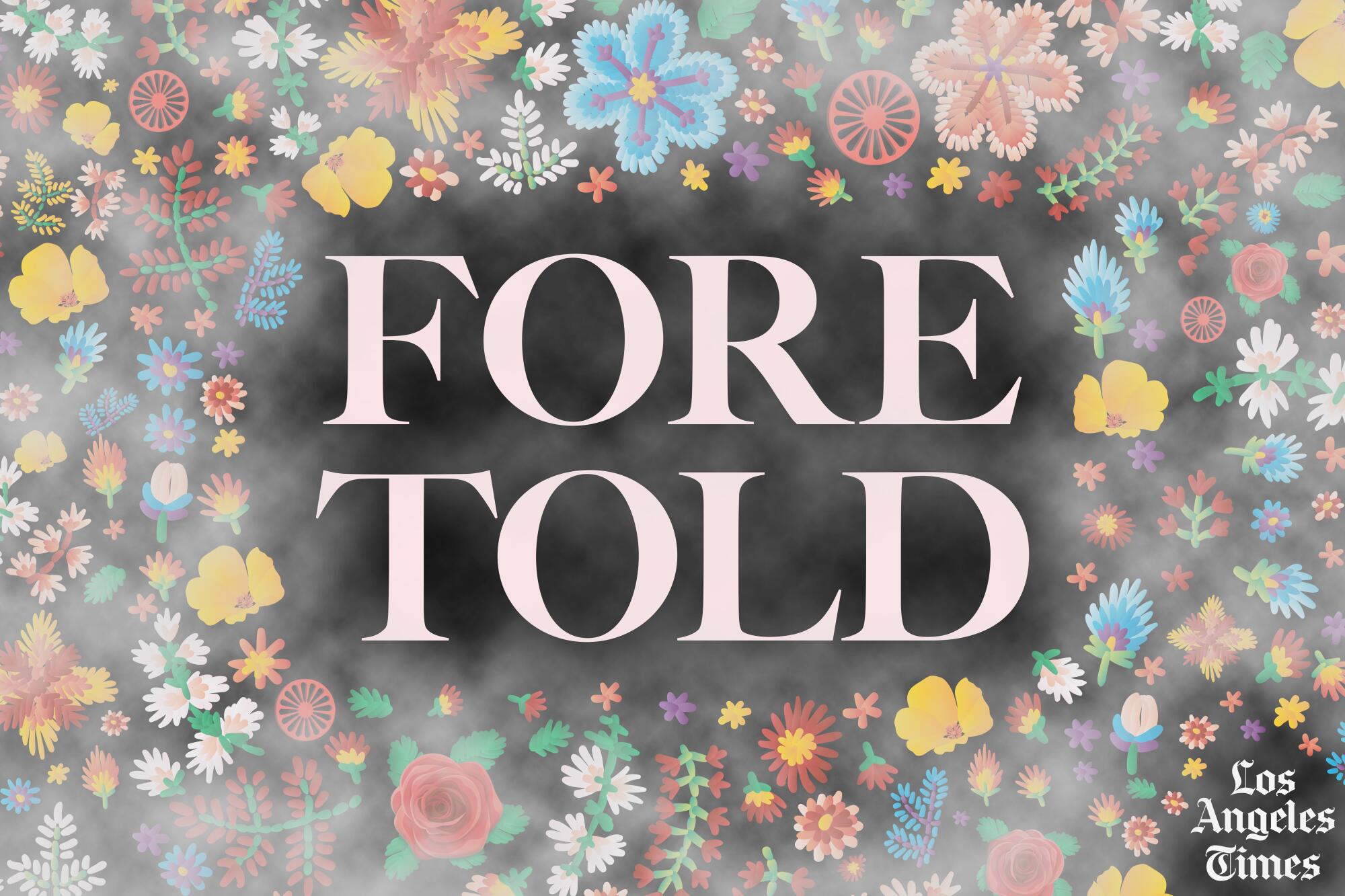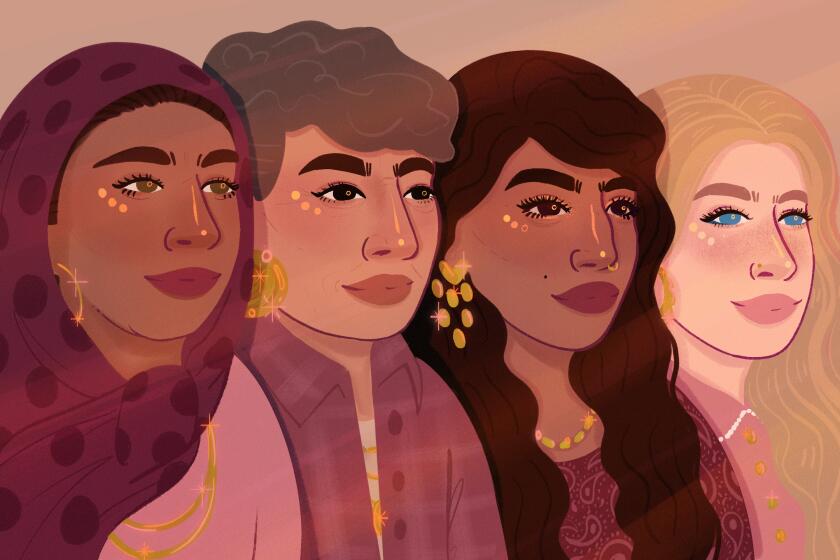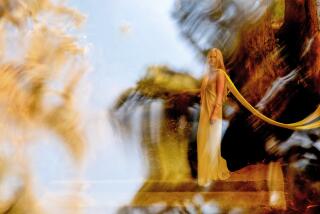
- Share via
Follow 'Foretold' wherever you get your podcasts:
Episode 5: “New Territories.” As a young mother, Paulina grows disillusioned with her home life and yearns for independence and a space she can call her own. Once she opens a new psychic shop, she meets a couple of new clients who give her a peek into their outside world — and there’s no going back.
Read the episode transcript.
See all episodes and extras.

When you go spelunking or visit a deep underground cavern, the tour guides often point out an optical illusion.
Underground, it’s difficult to spatially gauge the surroundings. Things that are big look small. Things that are close look far, and vice versa. This illusion is especially strong when looking at stalactites, the mineral formations dangling from a cavern’s ceiling. Sometimes they seem small when in fact they’re the size of redwood trees.
The guides warn you about this because if you don’t have a point of reference, you can become disoriented, so if you go far enough, you can get dangerously lost.
When Paulina Stevens started dipping her toes into a non-Romani lifestyle, she was essentially peering into the depths of a new cave. So she looked to her new clients-turned-friends, Amber Peck and Matt Verminski, for reference points.
‘There was no shame in sharing with Amber. … She would give me her opinion, she would give me some advice, made me see things from a different point of view.’
— Paulina Stevens in “Foretold”
At a time when Paulina was feeling particularly out of sync, she began talking with her friends about her home life. Maybe she was grasping for any kind of reassurance.
‘A lot of the things that she would bring up, I think she brought them up for validation that, “Is this normal?” No, it’s not normal. I think you already know that it’s not normal.’
— Matt Verminski in “Foretold”
But “normal” is really another way to say “reference point.” Normal is in the eye of the beholder.
‘Matt and Paulina were each looking at what “normal” meant from two very different vantage points. So even if Matt didn’t totally understand what was going on, Paulina was eager to hear his take on her life. She was really curious about his perspective as an outsider.’
— Faith Pinho in “Foretold”
As Paulina chafed at the limitations of her life, she started veering off her prescribed path, bit by bit. First she moved into a new shop, then into a new home away from her in-laws’ house. She stopped dressing so traditionally. She got a driver’s license.
All that distance and time away wasn’t enough. And in one particularly dramatic moment, Paulina described her mother-in-law, Ruby, confronting her about her absences.
‘Do you feel like we’re not good enough? Do you just want more? Do you want to do more?’
— Paulina Stevens, recalling Ruby’s words, in “Foretold”
The confines of her life felt limiting to Paulina. For a while, she had thought she just had to adjust to that discomfort. Ruby was seemingly comfortable within the confines.
But Ruby’s questions felt a little too on the nose, Paulina recalled. Maybe Ruby could relate. And that possibility led Paulina to think not only about wanting change, but also about what exactly that change could be.
‘Before that moment, I was thinking more of like, “I just don’t want to be here.” That’s it. “I just don’t want to be here.” I wasn’t thinking about what I really wanted.’
— Paulina Stevens in “Foretold”
After growing closer to Matt and Amber, while growing further apart from her in-laws and husband, Paulina decided she’d gotten enough reference points to explore. She picked a direction and dived right in.
— Jazmín Aguilera

Go even deeper
“Romani women aren’t a monolith. But we all contend with patriarchy and marginalization both inside our culture and from the outside world,” activist and scholar Nicoleta Bitu says.
I faced racism from white feminists. But Black thinkers taught me about intersectionality and I learned to define my own Romani feminism.
More to Read
About 'Foretold'
Theme music by seven-string guitarist and composer Vadim Kolpakov and composer Alex PGSV. Additional original music by Vadim Kolpakov and Alex PGSV, as well as Alex Higgins. Fact checking by Kasia Broussalian, Lauren Raab, Asal Ehsanipour and Faith E. Pinho. Additional research by Scott Wilson.
Thanks to Shani Hilton, Kevin Merida, Brandon Sides, Dylan Harris, Carrie Shemanski, Kayla Bell and Nicolas Perez.




